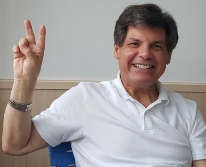 Introspective
Introspective
By
Thomas F. O'Neill
Many years ago, in ancient China, people believed in the Buddhist concept of reincarnation and the belief in Karma – in other words, ‘what you give is what you receive.’ There are now 1.4 billion people living in China, but most Chinese people no longer hold ancient Eastern religious beliefs. Confucianism is also considered part of ancient Chinese history rather than religiously held customs.
That being said, many ancient customs still influence how Chinese people behave toward one another; most are polite in their daily interactions. Karma may no longer be a religious concept for the majority, but it’s still deeply rooted in their culture.
The old Buddhist concepts have now become more of a philosophical pursuit for many of today’s youth, and that is certainly a good thing. Ancient Eastern traditions that are widely rooted in China are beginning to lose their religious significance, mostly due to education and Western influences.
However, there are still people living in China who believe in rebirth, and one's life’s fate can be determined by one's actions from previous lives. The majority, though, regard such beliefs as mere superstition.
I have come in contact with some elderly Chinese people who believe my good fortune directly results from my previous life experiences. For those whose lives are more burdensome, it’s a direct result of bad karma, according to my then-elderly neighbors.
It was a commonly held belief that people are reincarnated to work through their karma and learn from past mistakes. However, if you were to ask an average university student whether Reincarnation and karma are realities or myths, many students would respond that they are a possibility and then engage you in a philosophical discussion. Many of China’s ancient beliefs are philosophically discussed in universities. It’s a way for the ancient traditions to be remembered and to keep the ancient Chinese culture alive in our modern world.
I had several experiences where two 3-year-old children pointed to me on different occasions and then ran up to me to hug me. Those children’s grandparents would laugh and then stare at me in disbelief. I’m unsure what name the children called me, but those experiences were intriguing. It reinforces the belief that I am in China for a reason, and there are certainly deeper dimensions to life than meets the eye.
I find many ancient Chinese customs intriguing, and discussing them more fully here is a way of gaining a greater understanding of why many of today’s cultural differences exist between the West and the East. I understand our culture better when I delve deeper into Chinese cultural traditions. Many of the misconceptions I had about China, in general, before I moved there have faded away toward a deeper understanding of myself in relation to others.
I have lived and worked in China for 14 years, which has made me a better person. Through my reflections, I hope to bring my personal experiences from living there back to the US. I now live in the US again, but I still miss China and the people I have gotten to know there very much. My work is nowhere near the kind of work I did in the past, but this is the path I have now been given.
Always with love,
Thomas F O'Neill
Email: introspective7@hotmail.com
WeChat - Thomas_F_ONeill
Phone (410) 925-9334
Skype: thomas_f_oneill
Twitter: https://twitter.com/Thomas_F_ONeill
Linkedin: https://www.linkedin.com/in/thomas-f-o-neill-6226b018/
Instagram: https://www.instagram.com/thomas_f_oneill/
Facebook: http://facebook.com/thomasf.oneill.3/
Click on the author's byline for bio and list of other works published by Pencil Stubs Online.
This issue appears in the ezine at www.pencilstubs.com and also in the blog www.pencilstubs.net with the capability of adding comments at the latter.
|